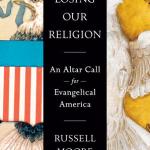This post is part of a series walking through the third volume of Abraham Kuyper’s Common Grace
We now move into Kuyper’s discussion of science as we near the end of Common Grace. Science is a subcategory of society, though it is also its own sphere. It is independent, and must remain so–though in its youth science was dependent on others spheres just as children begin as dependents of their parents. Now that science has split off from other spheres it must be independent in its maturity as it takes place in the “realm of creation.” (524) Unlike the state and the church, science is not the result of sin–though of course it is affected by sin.
Science is tied to God as He is thinking, which itself preceded creation. God’s thoughts are the foundations of creation. They precede existence, and govern continued history. This is the “wisdom” of Proverbs.
So all of creation must contain God’s thought and teach us about Him.
“God’s thoughts constitute the core of the essence of things, and it was the divine intention to prescribe for created things their manner of existence, their form, their principle of life, their destiny, and their progress.” (527)
This means creation is also teleological–it moves forward by God’s plan.
But can we reflect this thought? Not all creatures can. Animals seem not to–though we should be careful in what we assume about them given how little we know. Angels do, but not fully. Only people made in God’s image have the capacity to enter God’s thoughts and reflect them in the created order.
When we turn this capacity to creation, science is born. Not that all people can do science equally–we’re too small individually for that:
“The principal confession by the Christian that human beings are created according to God’s image reaches much further than the acknowledgement that each of us, personally and individually, belongs to God’s race. Rather, it comes into its own only when we extend it o our entire race down through the ages, and then combined it with the talents that are bestowed upon all the individuals who comprise the human race.” (529)
Yes, we each have the image of God in us fully and completely. But the human race as a whole has it as well, and in some ways more so than any of us can on our own. And not even just the human race now, but the human race as we have existed over time. The image of God requires the full diversity of humanity–not even sin can change that. In fact our diversity may be a part of creation.
“Science” is a part of this diverse unity of men. This is why there was so little science in the past, and why such good years are ahead of us. It is a building going up without an agreed-upon blueprint (from our human perspective) that expands and rises organically over time. As the building emerges, we can see a plan at work that no human scientist ever imagined.
More on this in the next post.
Dr. Coyle Neal is co-host of the City of Man Podcast an Amazon Associate (which is linked in this blog), and an Associate Professor of Political Science at Southwest Baptist University in Bolivar, MO













